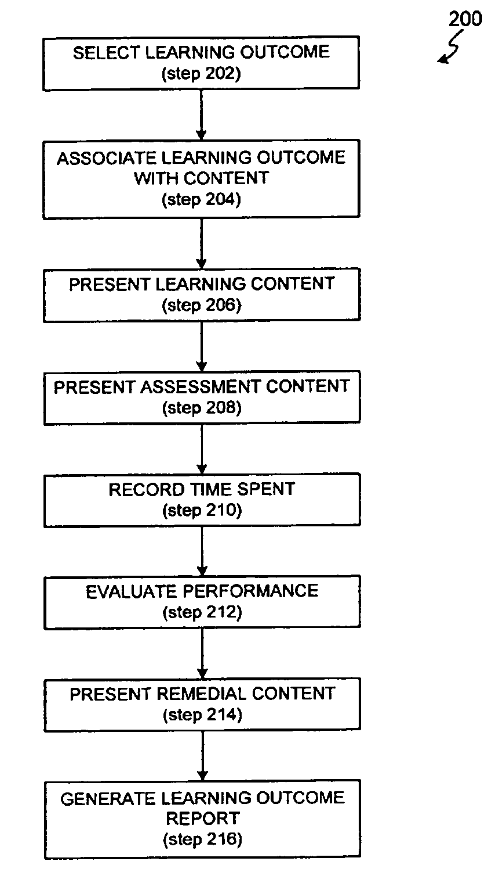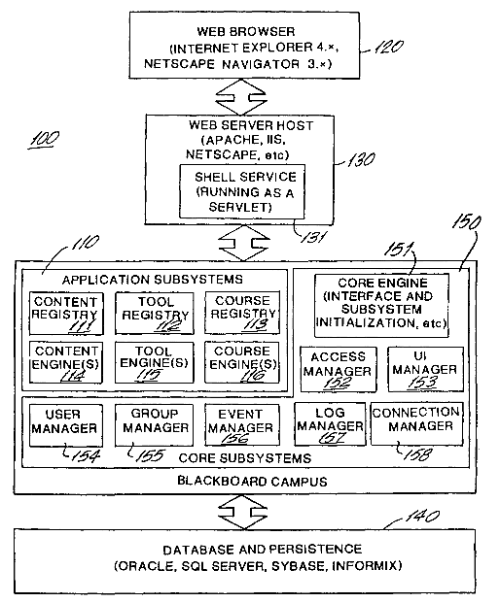#YesAllWomen in ed-tech
Earlier this week, Ariel Norling published an incredibly brave article— an incredibly difficult to read article — chronicling predatory behavior and sexual assault at last year’s ISTE conference.
I don’t know Ariel; we’ve never met. I’m not sure I’ve ever covered her edu startup on Hack Education. A mutual friend introduced us, hinting that she was working on a blog post that was gut-wrenching but essential as we (hopefully, right?) build a better ed-tech culture. As such I read a draft of Ariel’s article a week or so ago, my stomach in queasy knots as I learned about her experiences of sexualized violence and ed-tech and, no surprise, as I thought about my own.
I support Ariel in telling her story. As I’ve watched the events unfold around her hitting “publish,” around the post getting shared, around the responses (and lack of responses) from those in various education and ed-tech communities, around the feedback and blowback and pushback, I want to reiterate: I support Ariel in telling her story. It is her story. She tells it with full knowledge, I think, that this isn’t a simple story. She tells it with full admission too that it’s a story colored by time and by trauma, not to mention by alcohol.
Ariel’s story was prompted by the #yesallwomen hashtag on Twitter, which was in turn inspired by the virulent misogyny that led to the recent mass shooting at UC Santa Barbara.
And that’s the thing: It’s her story. But it’s my story. And it’s lots of our stories. Because #yesallwomen. Because there is deep, deep misogyny that runs through our society — through our education institutions and through the technology industry. And silence does not protect marginalized people; it protects the powerful.
My experiences
As I’ve explained on this blog before — or actually, in retrospect, maybe I’ve just hinted— I have received an incredible amount of misogynistic and violent feedback to my work in education technology.
I regularly receive threatening emails and tweets. I used to receive threatening comments as well, but I closed comments on this blog. I block and report accounts regularly on Twitter.
To be clear: I don’t block accounts or axe comments because people disagree with me. People disagree with me a lot. I get that — it’s part of being part of an ongoing public debate about the future of education. Disagreement and debate come with democracy. I welcome that. (And I admit: I’m busy and I fail to respond to a lot of the critical feedback I receive; I try to respond when I can.) But I block because of harassment — harassment that is ongoing, harassment that is frequent, harassment that is gendered.
I try not to focus on this aspect of my work as a woman in ed-tech. Indeed, that’s part of the reason why I closed comments on this site: so I could focus elsewhere — ya know, on my work. I try to ignore the threats. (I can do so, in part, because I’m a white heterosexual woman in a LTR with a big dude with a big beard.) I pretend like this is all “Internet comments” and as such not “real.” I bury my emotions.
I realized, reading Ariel’s story, that I’ve buried stuff that goes back beyond my latest stint as an ed-tech writer:
Six-ish ago, I worked, very briefly, for ISTE. I managed the organization’s special interest groups and was tasked with reforming some of their policies and practices. Not a fun job; not a welcome task.
(At least) One of the volunteer leaders of one of the groups didn’t much like the changes. He made that very clear in an incredibly unprofessional email just a few days before that year's ISTE conference — an exchange that eventually turned, in my mind, quite threatening. Because of the tone and contents of his email, I handed things over to my supervisors, requesting help with how best to respond. Honestly (and weirdly — ISTE’s members are educators, right?), I feared for my safety. And because of the political machinations that swirl around ISTE’s most influential and active members, the issue was escalated to the very top of ISTE’s chain of command, to the executive management team.
And there — in a call with ISTE’s CEO — I heard one of those questions that women in these sorts of situations hear too often: “What did you do to make him so angry?”
The problem was me. The problem was mine— that was the message I got from ISTE leadership at least.
I felt no support from ISTE’s CEO. (There was tremendous support from the women I worked with at the organization.) There was no recognition from him that I was heading — then single — to a conference where I’d be expected to interact with this person in several sessions and in several after-hours events, potentially all on my own.
My safety was up to me. And if something happened, well, the message was clear: “What did you do to make him so angry?”
And from there — see, this is patriarchy and this is rape culture — it’s really not a far leap for me to make to: “What did you do to make him [fill in the blank with verbs from Ariel’s story]?”
ISTE’s Code of Conduct [Then]
Shrugging off my concerns, ISTE leadership pointed to its (toothless) ISTE Member Code of Conduct (I swear there is one but I can’t link to as it’s not possible to find on the organization’s website) and the (toothless) ISTE Conference Code of Conduct (which is similarly not easy to locate on this year’s conference site so here’s what I can find from 2012), acting as though there was nothing the organization could do to protect me — the policy on the books simply didn’t demand it, and well, there you go:
ISTE’s Member Code of Conduct is to act and communicate in a courteous and professional manner:
- Treat other members of the ISTE community fairly and with respect. This includes fellow members, volunteers, staff, and the wider educational population engaged in ISTE-facilitate discussions, events, and communities
- Communicate professionally and constructively, handling dissent or disagreement with courtesy and an open mind. be respectful in providing feedback, and be open to alternate points of views
- Share information about the organization via ublic communication channels reponsibly; clearly identify individual opinion from verifiable fact
- Resources provided to enhance the ISTE conference environment are limited and highly influenced by the individual and collective behavior of their users.
With this in mind, we ask that all participants:
- Be mindful of the parameters of shared bandwidth
- When possible, use only one device at a time to access the Web
- Disable Web-seeking on devices not in use
- Power/charge devices to their fullest before arriving onsite; do not bring and/or daisy-chain powerstrips in public spaces or meeting rooms
- Avoid downloading large files onsite if this can be accomplished overnight at your hotel
- Use only the established wireless network SSID for the conference (avoid tethering or establishing networks with your own computer/device
“Be kind and courteous.” But there are no consequences if you aren’t.
The priority for “good conduct” at the ISTE conference is to “be mindful of the parameters of shared bandwidth.” Bandwidth over bodies. The safety of attendees — particularly marginalized attendees or marginalized workers — be damned.
ISTE’s Code of Conduct [Now]
When I first read Ariel’s story, my immediate thought was that I had failed in my responsibility to others by not insisting the organization adopt a better Code of Conduct. I was an employee then, and shortly afterwards I said “fuck it” and I quit. (Frankly, as an employee, I felt my voice didn’t matter.) As I thought about Ariel's experiences, I wondered — now as a minor ed-tech Internet celebrity blah blah blah — if I could push more forcefully to get ISTE to change its policy. ISTE must change its Code of Conduct now: “be kind” is woefully, embarrassingly insufficient.
See, I don’t want the focus of Ariel’s story to be on the individual men involved. Sure, I get that folks will speculate who these men are. They’ll decide how to interact with men in ed-tech in the future. But that’s not what matters for me. (And I’m not sure that’s what Ariel was thinking either, although I really can’t speak for her motivations in writing, almost a year later, about these events. In part, I think she wanted people to know what she experienced, she wanted men in ed-tech to recognize that they cannot blithely chime in to the #yesallwomen movement without recognizing their own male privilege and their own complicity in sexualizing the women around them.)
I want to address this question of safety at an institutional and cultural level, not just at an individual one. I’ve had fragments of a “gender and ed-tech culture” post started for over a year now. But right now I want to talk about what ISTE can do. (I do want, more broadly and eventually, to talk about ed-tech culture… but that’s for another post, I suppose.) The ISTE organization and the conference describe itself as the premier ed-tech event in the world. If ISTE wants to be a leader, ISTE should be a leader. And despite some folks shrugging their shoulders and saying that ISTE can do nothing to stop violence against women, I think it can do a lot.
It can, at the very least, create a Code of Conduct that explicitly addresses harassment.
ISTE does not give a shit
Instead, what we heard yesterday afternoon from ISTE’s new CEO Brian Lewis was utterly dismissive, if not utterly disgusting. His response to Ariel’s article never mentions her. He never links to her. He refers to the whole thing in a strange passive voice: as if these incidents happened thanks to some social media phenomenon, absent of human action. There are no actors, no subjects complicit in these violations — and certainly no responsibility of ISTE.
Lewis talks about the money ISTE spends to protect the conference — hundreds of thousands of dollars spent on security (actually, this money mostly serves to protect the exhibits, let’s be honest), hundreds of thousands of dollars spent on transportation (actually, this just gets people to and from conference hotels to the main conference site). None of this is particularly commendable; that is the cost of doing business for a 13K+ person event.
And none of this is done first and foremost to protect marginalized people. That Lewis would suggest otherwise is incredibly insulting.
But Lewis goes even farther; he suggests that there’s nothing ISTE can or will do. He throws up his hands. Our world is rife with misogyny and violence! Rape is inevitable! Sexual assault at conferences is just gonna happen! And you should believe him, he argues, because he was a TA in a women’s studies class in college. He knows all about this sort of thing. Or some unbelievable bullshit that I cannot believe an ed-tech non-profit CEO actually posted online. (I even screenshotted the thing, thinking it’ll be disappeared — it’s that bad.)
His response contains no practical steps that ISTE could take or will take to make the conference a safer place. It contains not even the most meager of symbolic gestures to that end. No “Hey, we think safety at ISTE is really important, so we’re look into refreshing our Code of Conduct. Maybe.” Nothing.
Nope. It’s a pretty typical #NotAllMen response. #NotAllISTEMembers. And that is utterly unacceptable.
Why do Codes of Conduct matter?
Assaults at conferences are not new. And they’re not rare. #YesAllWomen.
The Geek Feminism wiki has collected a timeline of “incidents” at technology conferences (recognizing of course that only a tiny fraction of these are ever even reported to authorities — be those the conference organizers or the police). Bad behavior at conferences is pervasive. But let’s be clear: that doesn’t make it okay. That doesn’t make it inevitable.
Programmer and activist Ashe Dryden has created an incredibly thorough guide to creating a Code of Conduct that addresses harassment — something I have shared with ISTE — along with a FAQ about why these sorts of policies matter.
The most difficult thing to explain to people is that codes of conduct do not necessarily stop all poor behavior, in much the same way that establishing laws don’t necessarily stop people from breaking them. A code of conduct lays the ground rules and notifies both bad actors as well as the people at the receiving end of that behavior that there are consequences for those actions. Think of a code of conduct like the harassment policy most American businesses have (I’m not sure how prevalent that is internationally) - it defines what harassment is (for both the harasser and the harassed) and sets the ground rules for acting on reports. A code of conduct helps by signaling that attendees should trust conference organizers, staff, and volunteers will respond appropriately should a report be made.
A Code of Conduct explains what constitutes unacceptable behavior, and it explains what actions conference organizers might take in response. (And yes, conference organizers can legally take action without involving the police or the courts. Here is lawyer Ken White addressing that very issue.) A Code of Conduct — one with teeth and with heart — also trains conference organizers to respond appropriately.
A Code of Conduct that addresses harassment is a first step. It helps create a place where all bodies, all voices are welcome and hopefully all bodies, all voices will feel — will be — safe.
What should we do next?
This post feels like an inadequate response to harassment at ISTE events and to a blog post that’s creating a shit storm in (some) ed-tech circles. It feels like such a feeble gesture in the face of forces that want to protect male privilege and the status quo in ed-tech. It feels like such a feeble gesture in the face of widespread violence in our society.
I mean, what can we do?
Me, I am more convinced than ever that speakers and exhibitors and attendees at ed-tech events should agree not to attend events that do not have an adequate Code of Conduct in place. (See author John Scalzi and his commitment to not speaking at conventions that don’t have an anti-harassment policy.) Unfortunately I’m committed to being at an pre-ISTE event, but by god, when and if I'm given the microphone, you can bet what I’m going to talk about. And from here on out, I’m going to be louder about this issue when I travel around and speak at ed-tech events.
Because #YesAllWomen. If we’re committed through our work in education to creating a better future, we need to address this head-on. We need to address it now.
I refuse to be silent about this, recognizing the great risk in speaking up and speaking out. But I recognize too that ignoring this — ignoring violence, pretending like it doesn’t happen in education, protecting those in power — doesn’t make any of it go away. Indeed, it makes us complicit.
Image credits: Lucas Cobb and The Noun Project





































